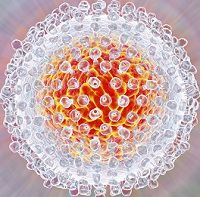Hepatitis C Virus Core Antigen Testing: What We Can Learn from the Protease Inhibitors
Measuring the hepatitis C virus (HCV) antigen in patients who are receiving protease inhibitors (PI) could provide an alternative to monitoring treatment response, according to a recent study.

Measuring the hepatitis C virus (HCV) antigen in patients who are receiving protease inhibitors (PI) could provide an alternative to monitoring treatment response, according to a recent study. Published in the journal PLOS One, the study was conducted by Linh Thuy Nguyen of the National Virus Reference Laboratory at University College Dublin, in Ireland, and colleagues.
Direct-acting antivirals (DAAs) have made it possible for more patients with HCV to achieve sustained virologic response (SVR). However, DAAs are expensive and often toxic, meaning frequent RNA testing is necessary to making informed treatment decisions. RNA quantification assays, are, in turn also expensive, and may have a less-than-desirable turnaround time. The researchers say there is “potential clinical utility of core antigen (HCVcAG) at early stages” in DAA treatment “to predict treatment response as early as day 3, week 1, or week 2.”
“The present study aims to determine the utility of HCVcAG testing in the era of DAA-based triple therapy,” say the authors.
There were a total of 152 participants in this study, all with genotype-1 HCV. Of those, 110 (72.4%) were receiving telaprevir (TVR), and 42 (27.6%) were receiving boceprevir (BOC). The researchers report, “In TVR treatment, the antigen level at week 1 and antigen negativity at week 2 allowed distinction of the groups achieving different outcomes.”
The main finding, according to the researchers is that “the present study provides evidence for high positive predictive values of early quantitative HCVcAG, within two weeks in TVR-based regimen and four weeks in BOC-based regimen, in predicting SVR in chronic HCV genotype 1-infected patients receiving PI treatment.” They acknowledge the limitation of having a small sample size, especially for the BOC-treatment group.
The authors conclude by saying that the results of this research “highlight the potential utility of early viral antigen kinetics in PI treatment and suggest that this could be a suitable replacement for viral load testing particularly in low and middle-income settings,” and suggest that further investigation is necessary.
Related Coverage:
A New Direction in the Search for a Hepatitis C Vaccine
HCV Patients May Have Better Options than Telaprevir, But Availability an Issue
Using Viral Load to Predict Hepatitis C Cure Differs with New Drugs, Studies Suggest